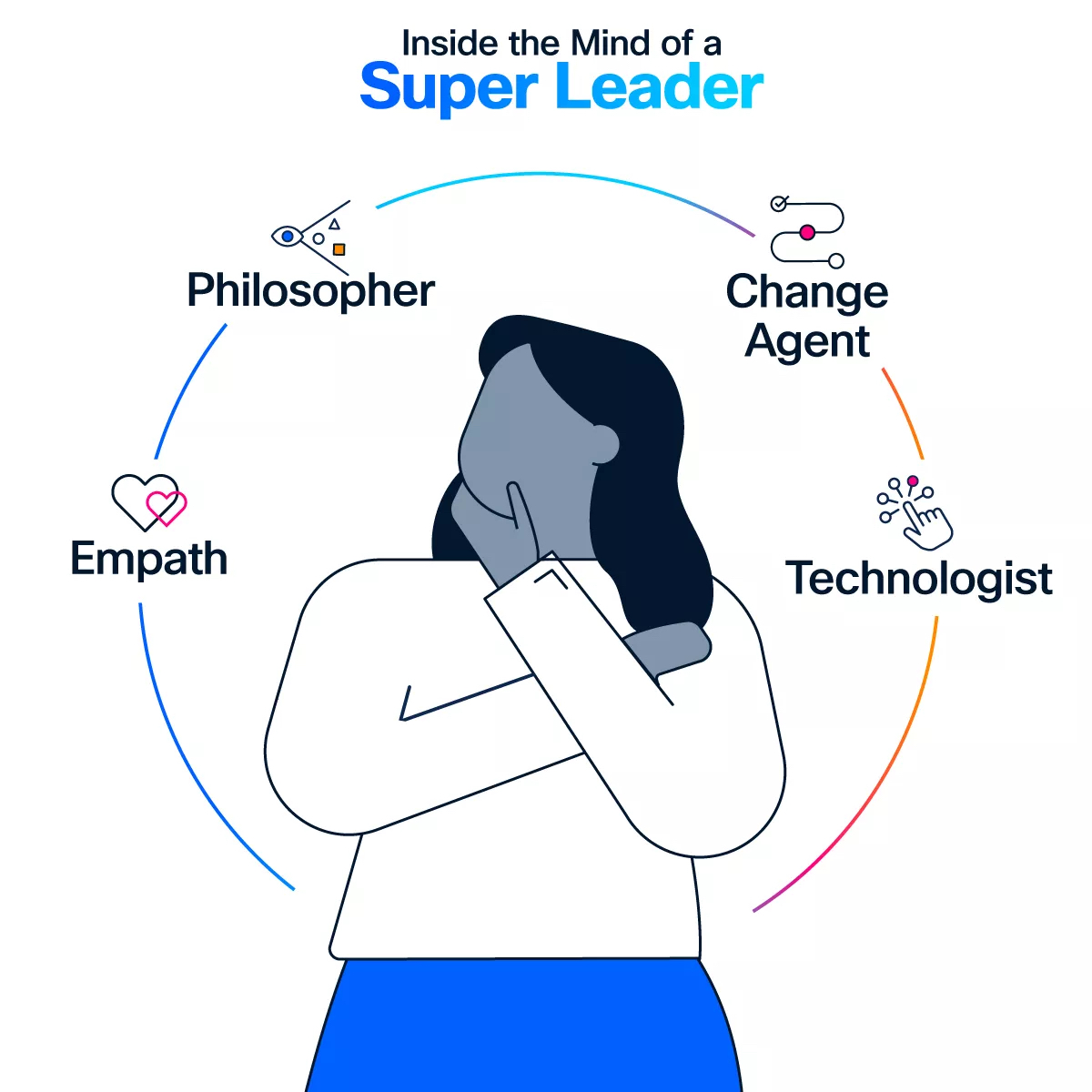Copyright newsweek

Great leadership has never been easy. In the age of AI, it is being redefined in real time. Not long ago, I was preparing for a difficult conversation with a high-performing team member who was struggling. I knew they were navigating personal challenges, and while I had outlined my key points, the tone didn’t feel quite right. That’s when I turned to AI. I provided the context: our relationship, their communication style, my intent. The AI model didn’t write the message for me, but it helped me refine it. It made my words clearer, more thoughtful and more empathetic. That experience reinforced a belief I hold deeply. The leaders who will succeed in the AI era are those who are technically savvy but also remain deeply human. This is why we need a new kind of leader, one who combines emotional intelligence with technological fluency. I call this the Super Leader. Work Is Changing, So Must Leadership AI is reshaping how we work. It’s also reshaping who thrives at work. According to Cisco’s 2024 AI Readiness Index, 85 percent of global business leaders believe they have less than 18 months to implement an AI strategy or risk falling behind. Yet, fewer than one in seven companies are fully prepared to adopt AI at scale. Even as companies increase investment, many are realizing they lack the infrastructure, governance and culture to fully unlock AI’s value. That gap creates an opportunity—and a responsibility—for leadership. Today’s employees don’t just want roadmaps; they want reassurance. They want leaders who can steer technology adoption and support people through uncertainty. That’s where Super Leaders step in. The Four Personas of a Super Leader As the demands of leadership evolve in the AI era, it is mindset, not title, that sets the most effective leaders apart. Those who thrive tend to embody four distinct personas: The Technologist embraces a growth mindset and leverages AI to drive innovation, efficiency and value. The Empath fosters psychological safety, inclusive dialogue and a culture of empathy. The Philosopher grounds decisions in ethics, purpose and long-term impact. The Change Agent leads with resilience, embraces uncertainty and helps teams move confidently through transformation. Personally, I gravitate toward the Philosopher. In times of change, values are our anchor. The best leaders question assumptions, reimagine progress and always keep humanity at their core. These personas aren’t fixed traits; they are capabilities that can be developed. At Cisco, we are creating intentional pathways to help leaders build them through training, coaching and real-world practice. Practicing Super Leadership at Cisco As a chief people officer, I use AI every day. Sometimes I treat AI like a strategic coach. I’ll outline a complex problem, lay out my thinking and ask it to challenge my assumptions. Other times, I use it to prepare for sensitive conversations, factoring in elements like communication style, relationship context or even personality insights such as Myers-Briggs or Instinctive Drives. It helps me refine my message and show up with greater clarity and empathy. AI has profoundly transformed the way I lead, allowing me to connect with greater empathy and clarity of purpose. At Cisco, we’re extending this transformative potential to our leaders by equipping them with tools and strategies to amplify their impact. Introducing AI into our organization wasn’t just about deploying cutting-edge technology—it was about fostering a culture of curiosity, experimentation and growth. Super Leaders Embrace Emerging Technology Leaders should feel empowered by their AI resources. At Cisco, we’re also actively working on integrating leader development opportunities into our internal AI assistant. This tool will provide prompts to guide leaders through critical moments, such as preparing for performance conversations or engaging in self-reflection to ensure they’re embodying Cisco’s Guiding Principles. Another initiative underway is using AI to support the individual growth of our employees. For example, when a manager gives feedback to a team member, Cisco’s learning platform will combine that feedback with other data points, such as the employee’s skills profile, to generate personalized learning recommendations. These might include articles, courses or micro-coaching moments, all designed to meet the employee’s unique needs. It’s a powerful way to turn insights into action and amplify the impact of our leaders. We’re also exploring the use of AI in virtual reality simulations to enhance leadership development. These immersive experiences will offer leaders tailored scenarios where they can safely practice various situations and receive targeted feedback to refine their skills and build c...



